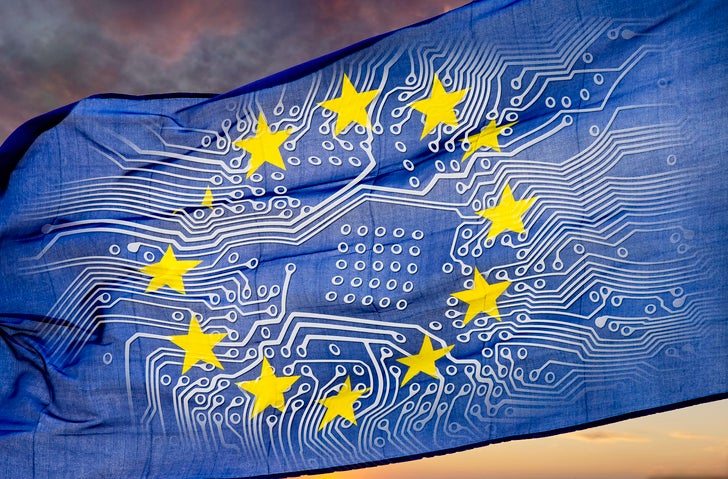
In a world first on Saturday (9 December), EU officials reached a provisional deal on a framework of laws to regulate the use and development of artificial intelligence (AI).
The talks, which lasted around 36 hours in total, saw EU negotiators agree on rules covering everything from facial recognition to OpenAI’s ChatGPT.

Access deeper industry intelligence
Experience unmatched clarity with a single platform that combines unique data, AI, and human expertise.
These rules will make up the EU’s long-awaited AI Act, which members of the European Parliament will vote on next year.
Part of the agreed framework targets developers of large-scale general-purpose AI systems. As of right now, experts claim that the only AI system that meets this threshold is OpenAI’s GPT-4 model.
Every company developing these systems must meet basic transparency requirements, unless they are providing the technology as open-source and for free, Bloomberg reported.
The EU will constantly review AI models and could designate others to be included under the framework at a later date. According to Bloomberg, the EU will look at the size of the data set, the number of registered end-users and other metrics.

US Tariffs are shifting - will you react or anticipate?
Don’t let policy changes catch you off guard. Stay proactive with real-time data and expert analysis.
By GlobalDataLarge scale models like GPT-4 will have to sign on to a code of conduct under the new rules. If a company chooses not to sign then it will have to prove that its complying with everything under the AI Act.
To prove it is complying, a company will have to provide an up-to-date energy consumption document, assess systemic risks and report any incidents, take external and internal tests and more.
The deal will be voted for early next year, with legislation expected to come into force in 2025.
Both France and Germany previously opposed strict regulation on large-scale AI models. The two countries claimed it could risk killing off European-based competitors, like Germany’s Aleph Alpha and France’s Mistral AI.
Victor Botev, CTO and co-founder of AI startup Iris.ai, believes this is a victory for European startups across the continent.
“Large multinationals alone should never represent the needs of Europe’s AI ecosystem,” Bortev told Verdict.
“These measures will ensure that we have a seat at the table and a hand in our own fate,” he added.
Bortev said that Germany, Italy and France’s “insistence on nurturing and protecting homegrown startups” has been critical to achieving the framework.
“Going forward, we must ensure these regulations don’t place an onerous burden on startups and open-source communities, limiting their ability to scale and compete with corporate behemoths headquartered in the US,” Bortev said.







